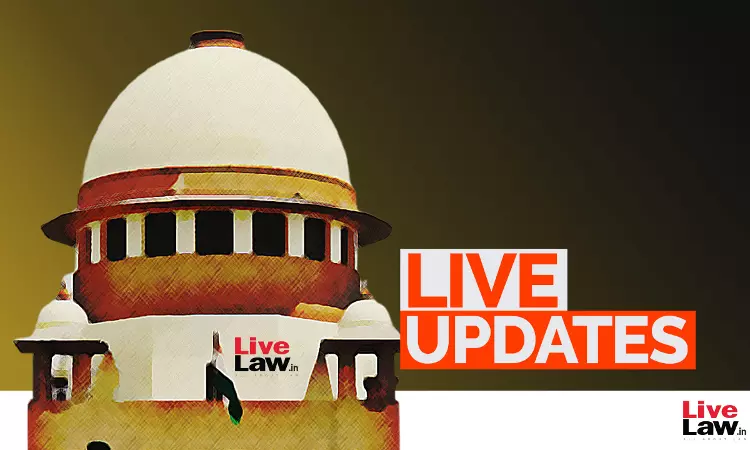Aligarh Muslim University Minority Status Case : Live Updates From Supreme Court Hearing
LIVELAW NEWS NETWORK
9 Jan 2024 10:49 AM IST

Live Updates
- 9 Jan 2024 12:37 PM IST
Dhawan : a transition takes place , you have a college (AMO) it gives all its property , it gives everything (to AMU) , there is a continuity which broken now because of the view in the 1920 Act. So my lords these were contradictions in A Basha .
Dhawan : this is completely unaccepted in light of St. Stephens and others, the antecedent history is important.
- 9 Jan 2024 12:31 PM IST
Dhawan : Mother Provential - which is a 6 judge bench as confirmed by TM Pai uses the word "found"
CJI : what is the difference between found and bring into existence?
Dhawan : bring into existence according to the judgement is to incorporate, found means you take into antecedent circumstances, mother provincial at para 8 says that even if single person does this it will be found. We are not just in the process of legal interpretation of article 30 but in the process of looking at the entire process, and he's absolutely right at looking at those latin terms, at the instance of preparation and the instance of founding.
- 9 Jan 2024 12:23 PM IST
Dhawan reading from A Basha submits - that recognition is fundamental in colleges and schools, when they were denying recognition then the court said its very important.
Dhawan - all along you are saying universities can be minority institutions and at the same time you're saying the intervention of a statute to deny you that status.
Dhawan : what does the word "established" used in article 30 mean? - to found, recognise, confirm or admit ( reads from the judgement)
- 9 Jan 2024 12:14 PM IST
Dhawan: it was only in 1956 that s. 22 of the UGC lays down that the right of conferring degrees shall be exercised by a university established or incorporated under a central act. When we were arguing YashPal Mr Trivedi made an important point that this must be read conjuctively, that is - establish and incorporate
- 9 Jan 2024 12:06 PM IST
Dhawan: There is really no dispute that its a minority, we accept the connection the MAO, AMU was just the alter ego, it was the continuity of the MAO Act
Dhawan refering to s.17 - the more important aspect is the establishment and the right that flows from it , that's important as the court recognises it but where this it get knocked out - on the first stage, it says you were established by statute so where is your right to administer?
- 9 Jan 2024 12:06 PM IST
Dhawan takes the bench to s. 23 (2) - this is the distinction between the external and internal, its misunderstanding of how universities are run.
Dhawan says there's a misunderstanding of the template- the rector disappears and becomes the visitor, do visitors have the right to supervise?
Dhawan: There is a decision in Gandhi Faiziyal, Krishna Iyer my lord with a dissent, that the fact that you place other people on board doesn't mean that you lose your minority


